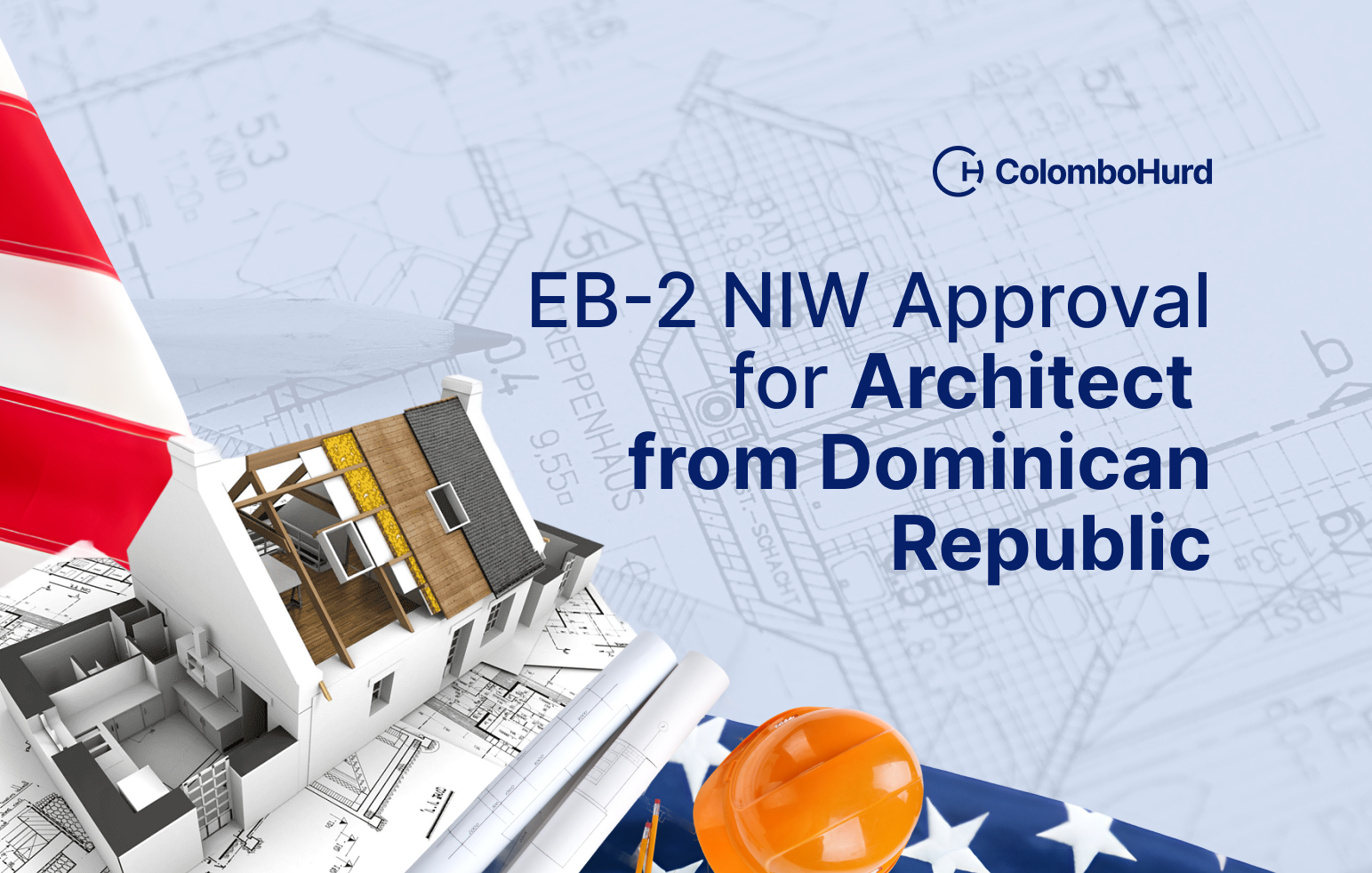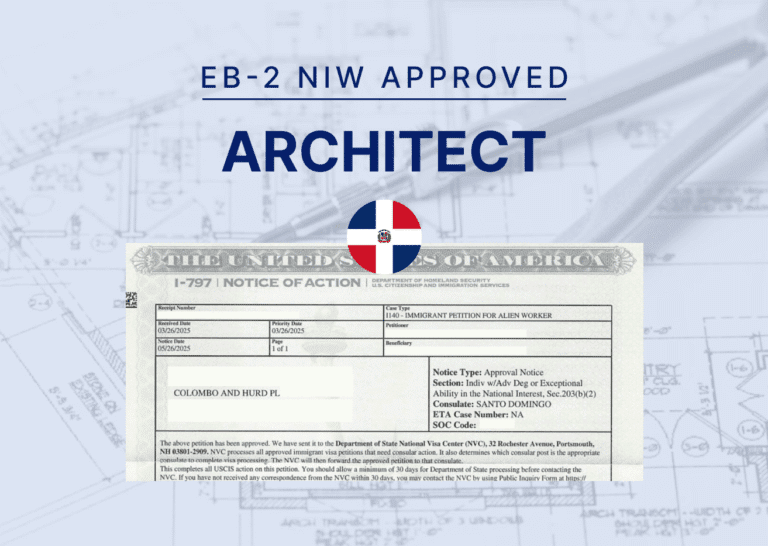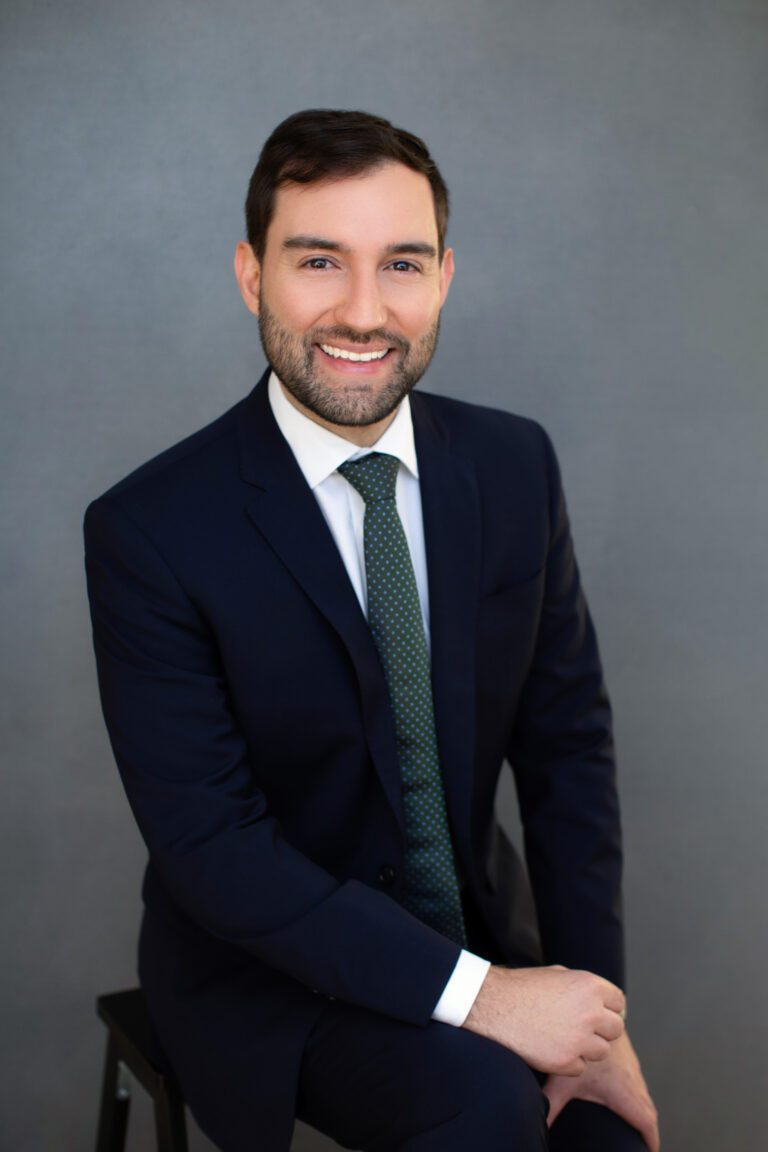Architect
Modernizing U.S. infrastructure demands more than traditional design, it requires innovation, strategy, and technology. Skilled professionals who combine architecture, sustainability, and project management are helping the United States build smarter and more resilient systems.
This case study highlights how an architect and project manager from the Dominican Republic earned an EB-2 National Interest Waiver (NIW) approval. Her innovative approach merges sustainable construction with advanced project management techniques to enhance efficiency and reduce costs.
With representation from Attorney Nicolás Vargas of Colombo & Hurd, the client proved that her contributions align with U.S. priorities in infrastructure modernization and environmental stewardship. Her EB-2 NIW petition was approved through premium processing and without a Request for Evidence (RFE), confirming the national importance of her work and its lasting impact on U.S. economic growth.

Integrating Project Management and Digital Construction Tools for Smarter, Greener Infrastructure
Our client, an architect and project manager from the Dominican Republic, holds an advanced degree in design, direction, and project management. With over a decade of experience, she has successfully led large-scale infrastructure projects across residential, commercial, and telecommunications sectors.
Blending architecture, sustainability, and technology, she brings a forward-looking approach to modernizing U.S. infrastructure. According to Attorney Nicolás Vargas, her work extends far beyond traditional construction, focusing on introducing advanced technologies and innovative building methods that bridge the gap between design and digital transformation.
Through the use of Building Information Modeling (BIM) and other digital tools, she delivers projects that are faster, greener, and more cost-effective. These methods streamline workflows, improve collaboration, and drive measurable gains in efficiency and sustainability.
Her proposed endeavor centers on advanced project management and sustainable construction strategies aimed at strengthening U.S. infrastructure. By aligning her work with national priorities for resilience, modernization, and innovation, she contributes meaningfully to the country’s economic and environmental progress.
How Architecture Meets Technology
The main challenge in this case was closing the gap between architecture and technology. Although the client had a strong background in design and project management, her field is not typically associated with advanced technological innovation. Demonstrating that her work met the EB-2 NIW standard of national importance required an evidence-driven and strategic approach.
The legal team needed to demonstrate that she was not only an accomplished architect, but also a technology-driven professional capable of advancing U.S. infrastructure through innovation. As Attorney Nicolás Vargas explained, “It’s easier to prove innovation when the petitioner is a software developer or engineer. With an architect, we had to prove she used technology in meaningful ways, and that it produced measurable results.”
Proving Innovation Through Measurable Impact
Attorney Vargas and his legal team built a strategy around evidence and measurable outcomes. They demonstrated how the client applied architecture, sustainability, and technology to deliver tangible innovation across large-scale infrastructure projects.
The petition highlighted her success in leading the adoption of digital construction tools, including Building Information Modeling (BIM), across international projects. Her experience managing major developments, both in Dominican Republic and in Canada, showcased her ability to apply advanced methodologies in competitive markets. These innovations achieved up to 15% cost savings, faster completion, and stronger coordination among teams.
By merging sustainability and technology, our client proved that modernization in construction can drive both economic growth and environmental progress. The legal team connected these achievements to federal priorities led by the Department of Energy, FEMA, and the National Institute of Standards and Technology, all focused on innovation, efficiency, and resilience.
Attorney Vargas noted, “This case revealed that innovation doesn’t only come from technology sectors. Architects can also transform how the U.S. builds by bringing modern, efficient, and sustainable practices to the field.”
An independent expert letter played a pivotal role, validating the client’s qualifications and the importance of her contributions to sustainable infrastructure. When combined with a business plan and proof of funds for her future U.S. firm, the petition presented a complete and credible narrative of a professional ready to advance America’s infrastructure modernization.
See if you qualify
Get your free EB-2 NIW visa profile evaluation today.
Premium Processing Approval Showcases Innovation and Real-World Impact
The EB-2 NIW petition was approved without an RFE through premium processing in just three to four months. With this approval, she can now establish her own firm in the United States, continuing to develop projects that promote efficiency, innovation, and environmental responsibility. Her work will support national efforts to create stronger, greener, and more resilient infrastructure.
For Attorney Nicolás Vargas, this case carried a personal connection. His wife also works in architecture and project management, which gave him deeper appreciation for the client’s technical and creative expertise. “It was fulfilling to see how someone who has already achieved so much abroad can now bring that same innovation to the U.S.,” he said. “Our infrastructure needs professionals like her—people who combine creativity, strategy, and technology to build a better future.”
“Working on this case reinforces how innovation isn’t limited to tech industries. Watching an architect lead through sustainability and digital tools proved how diverse expertise can modernize America’s infrastructure.”


